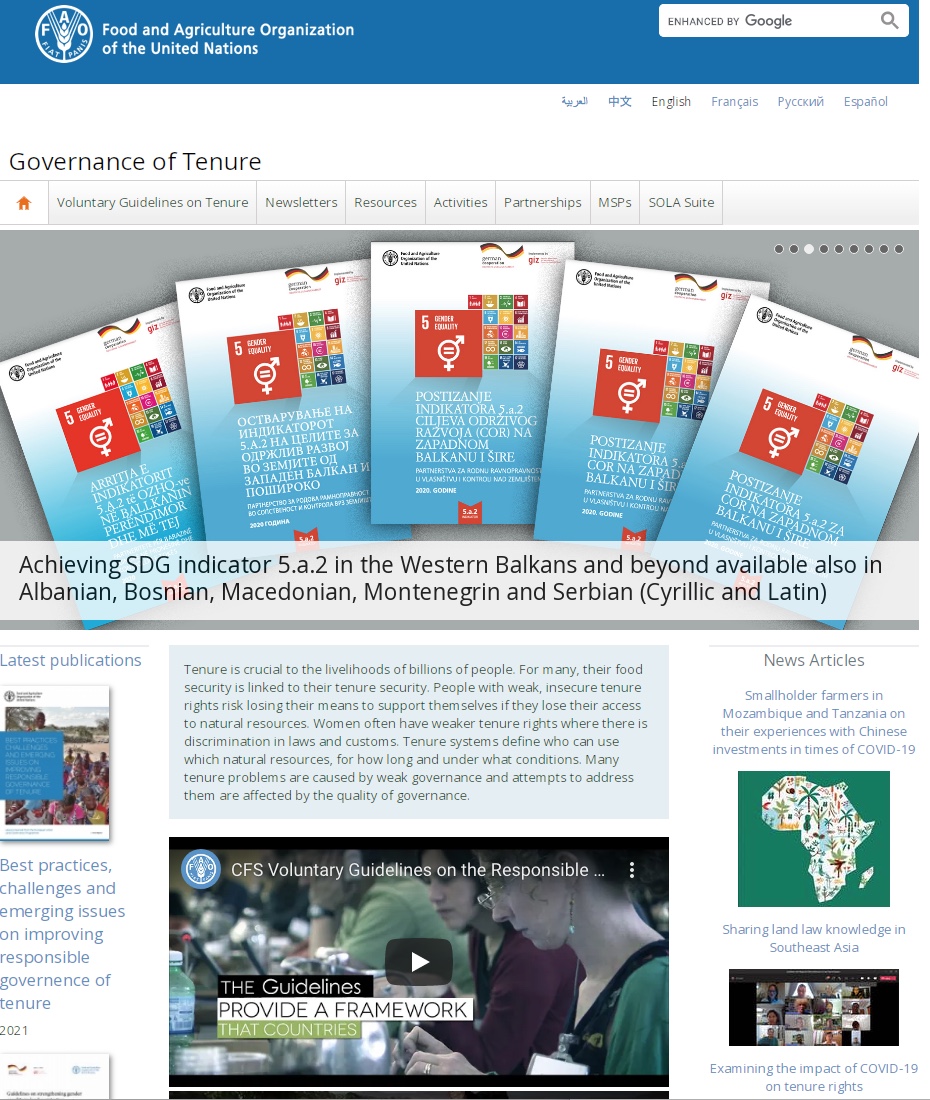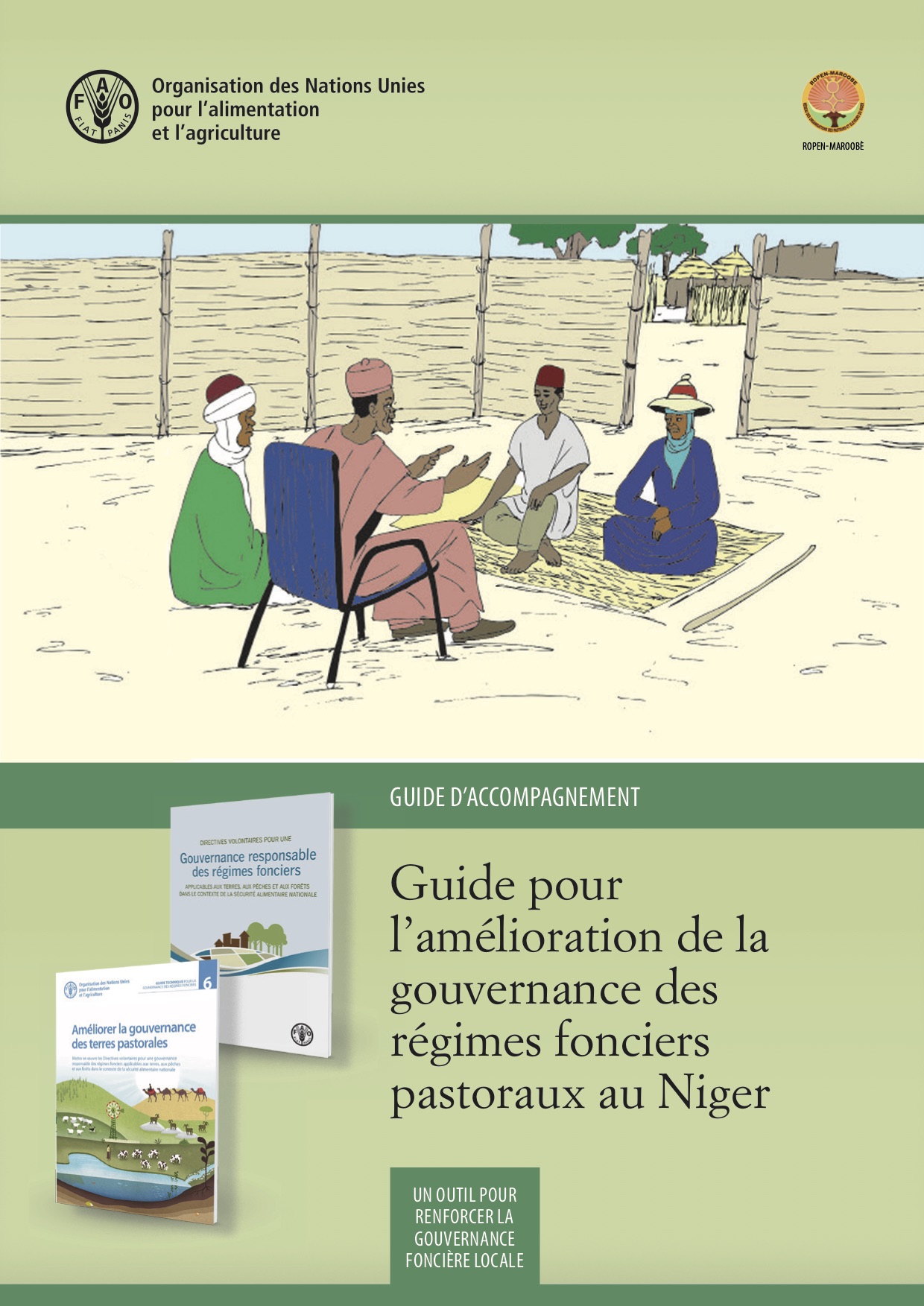Focal point
Location
The Food and Agriculture Organization of the United Nations leads international efforts to defeat hunger. Serving both developed and developing countries, FAO acts as a neutral forum where all nations meet as equals to negotiate agreements and debate policy. FAO is also a source of knowledge and information. We help developing countries and countries in transition modernize and improve agriculture, forestry and fisheries practices and ensure good nutrition for all. Since our founding in 1945, we have focused special attention on developing rural areas, home to 70 percent of the world's poor and hungry people.
Members:
Resources
Displaying 161 - 165 of 5073VGGT: Governance of Tenure
Tenure is crucial to the livelihoods of billions of people. For many, their food security is linked to their tenure security. People with weak, insecure tenure rights risk losing their means to support themselves if they lose their access to natural resources. Women often have weaker tenure rights where there is discrimination in laws and customs. Tenure systems define who can use which natural resources, for how long and under what conditions. Many tenure problems are caused by weak governance and attempts to address them are affected by the quality of governance.
The Voluntary Guidelines: Securing our rights - Mongolia
FAO’s Voluntary Guidelines on the Responsible Governance of Tenure of Land, Fisheries and Forests in the Context of National Food Security (VGGT) were endorsed by the Committee on World Food Security in May 2012. These Voluntary Guidelines have been described as a catalyst leading to improvements in the conditions under which land is held or occupied in the agriculture sectors. The Guidelines address problems of weak governance of tenure and the growing pressure on natural resources, thereby assisting countries to achieve food security for all.
Guide pour l’amélioration de la gouvernance des régimes fonciers pastoraux au Niger
Ce guide en image est le fruit des deux ateliers de Renforcement des capacités des Comités régionaux de transhumance qui ont réuni 110 participants (pasteurs/éleveurs, les gouvernorats, les conseils régionaux, les préfets, les maires, les chefs traditionnels, les services techniques régionaux et départementaux, les organisations de la société civile, ainsi que les représentants de projets et les organisations non gouvernementale (ONG) au niveau de la région). Ces deux ateliers se sont successivement tenus du 9 au 10 septembre 2019 à Dosso et du 13 au 14 septembre à Tahoua au Niger.
Une gouvernance foncière améliorée pour une prospérité partagée dans le bassin du fleuve Sénégal
Due diligence, tenure and agricultural investment. A guide to the dual responsibilities of private sector lawyers advising on the acquisition of land and natural resources
This guide examines the role and responsibilities of private sector lawyers when advising their clients on agricultural investments. It discusses how lawyers can prevent and/or address and mitigate adverse human rights impacts on holders of legitimate tenure rights when advising on or conducting their due diligence and risk assessment processes on behalf of their clients. It provides a number of key recommendations, including on how to align legal advice with the VGGT and CFS-RAI.











